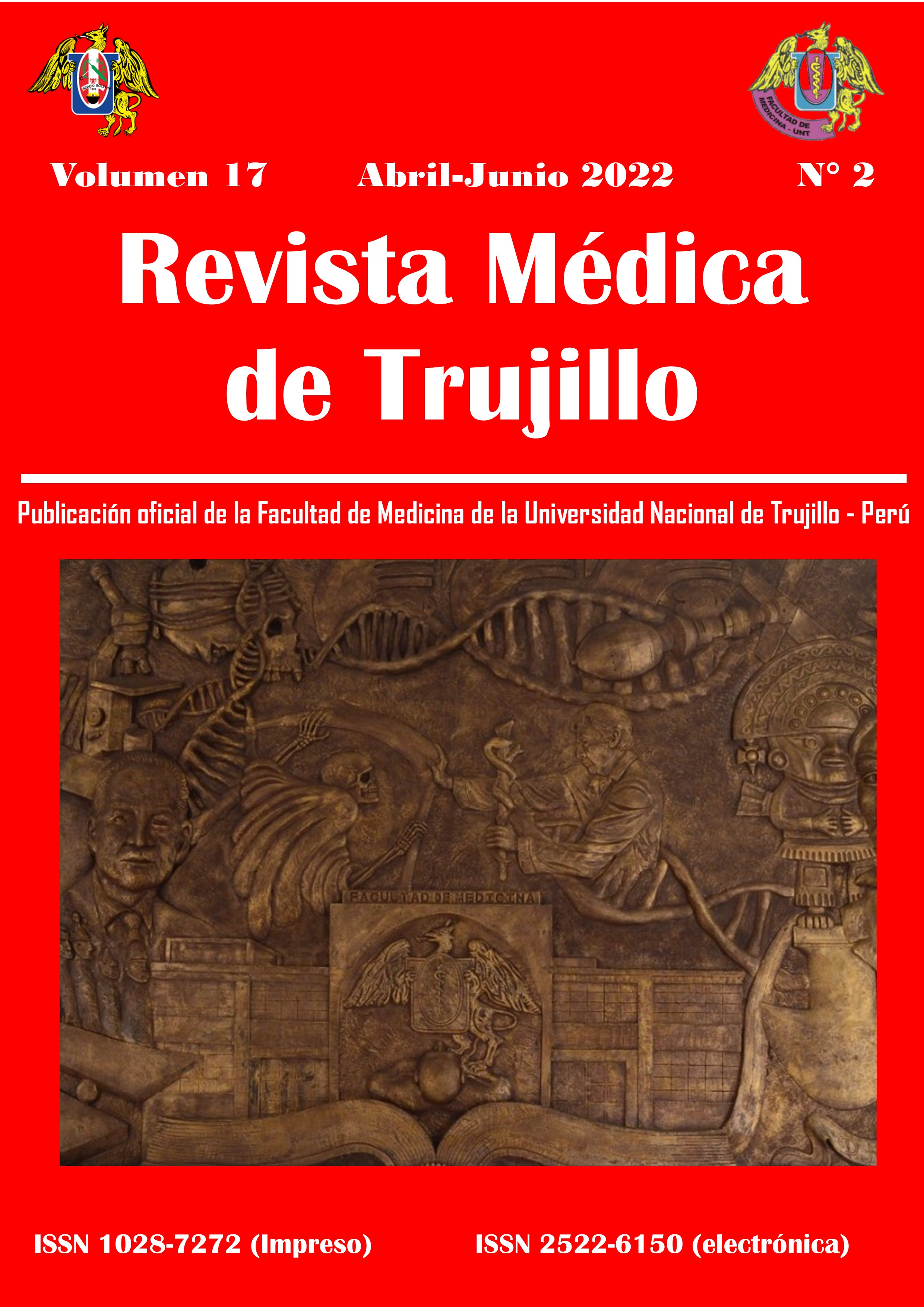Estrés prenatal por SARS-CoV-2 como factor de riesgo de la esquizofrenia
Prenatal SARS-CoV-2 stress as a risk factor for schizophrenia
DOI:
https://doi.org/10.17268/rmt.2022.v17i2.4567Palabras clave:
Esquizofrenia, activación inmune materna, Covid-19, estrés prenatalResumen
La esquizofrenia es un trastorno mental grave que se caracteriza por delirios y alucinaciones (síntomas positivos), además de abulia, depresión y deterioro cognitivo (síntomas negativos), lo que supone una gran carga socioeconómica requiriendo de un diagnóstico temprano y tratamiento oportuno. Esta enfermedad es de origen multifactorial, siendo uno de sus posibles factores el estrés prenatal causado por infecciones víricas, que podrían perjudicar el desarrollo neuronal. La investigación tiene como objetivo revisar la información sobre la infección prenatal por SARS-CoV-2 como factor de riesgo en el desarrollo de la esquizofrenia. El adecuado desarrollo del sistema nervioso requiere de un estado anti-inflamatorio del sistema inmunológico materno durante el segundo trimestre de embarazo. En este periodo, los procesos de infección viral, como la Covid-19, actúan como estímulos proinflamatorios que alteran el ambiente molecular e inducen la “Activación inmune materna” (AIM), evento asociado con la alteración funcional de las neuronas dopaminérgicas que genera desequilibrios en la concentración de dopamina. Asimismo, la AIM afecta la actividad fagocítica de las microglías, desencadenando una poda sináptica excesiva; además, induce cambios epigenéticos en las mismas, que sumado a su supervivencia de hasta 20 años, conllevarían al desarrollo a largo plazo de la esquizofrenia.
Descargas
Publicado
Cómo citar
Número
Sección
Licencia

Esta obra está bajo una licencia internacional Creative Commons Atribución-NoComercial 4.0.















